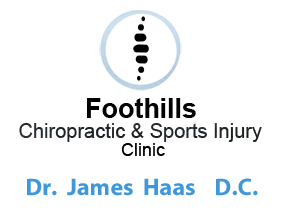DISC HERNIATIONS, SCIATICA AND EPIDURAL STEROIDS
Why Are Steroids Used to Treat Herniated Discs and Radiculopathies?
Corticosteroids are often used to reduce pain, swelling and inflammation in patients with herniated discs that do not respond well after several weeks of conservative therapy such as chiropractic treatment, spinal manipulation,physical therapy, massage therapy, exercise, ice and nonsteroidal anti-inflammatory medications. Steroids are often prescribed as oral medications for herniated discs and radiculopathies. Medrol dose packs are a commonly used prescription steroid. They are prescribed to try and reduce the swelling and inflammation of the nerve root injured by the disc herniation. If a disc herniation is treated with a injection into the spinal canal, the procedure is called an epidural. Studies have shown that if the epidural is not guided by continuous x-ray called fluoroscopy, the injection misses the intended target as much as 50% of the time. Prior to having an epidural an MRI must be taken to fully evaluate the disc herniation to optimize the injection site.
Do Corticosteroids work for Herniated Discs and Sciatica?
According to WebMD and other medical reviews the answer is unclear. Some studies have shown they work no better than a placebo. Other studies have found that epidural nerve blocks can be very effective for pain relief. About 50% of the time, transforaminal corticosteroid injections provide pain relief for up to a week. Some studies have shown that oral corticosteroids do not relieve symptoms of back pain and sciatica due to herniated discs. Neither oral steroids or epidural steroids have been shown to change the natural history of disc herniations or decrease the long term need for disc surgery. However, many individuals report that pain caused by a disc herniation can benefit from both oral corticosteroids and transforaminal epidural injections. Unfortunately, subsequent epidural injections for the same patient are almost always less effective. Interlaminar epidural steroid injections have had poor outcomes and this method has lost favor among most doctors. Transforaminal epidural steroid injections, done under video fluoroscopy, do provide some patients with short term pain relief. This can help increases the disc herniation patient's tolerance to exercising and spinal manipulation.
What are the Potential Adverse Effects of Treating a Disc Herniation and/or Sciatica With Steroids?
Steroid use over a long period of time has been shown to cause weight gain, stomach ulcers and osteoporosis. Avascular necrosis can occur causing focal bone death especially in the hip joints. Steroids should not be taken if you have an acute infection because they suppress the body's immune system. This is especially true for urinary tract infections and sinus infections. Patient's on blood thinners may not be good candidate for epidural injections because of an increased risk of bleeding. People with Diabetes should not take oral steroids because the steroids increase blood sugar. Epidural injections have a slight risk of causing spinal fluid leaks, spinal infections, nerve damages and even paralysis. Death is also a very rare complication of steroid injections.
Additional information concerning the use of steroids in the treatment of a disc herniation and sciatica.
http://www.uschirodirectory.com/index.php?option=com_k2&view=item&id=740:cervical-disc-herniation-with-radiculopathy-arm-pain-shows-significant-improvement-in-lowering-pain-and-disability-with-chiropractic-care&Itemid=320
http://www.webmd.com/back-pain/corticosteroids-for-a-herniated-disc
http://www.spine-health.com/wellness/exercise/exercise-sciatica-a-herniated-disc
http://www.lifescript.com/health/centers/pain/news/2015/08/24/spinal_injections_of_steroids_temporarily_ease_low_back_pain.aspx
http://www.lifescript.com/health/centers/pain/therapies-procedures/spinal_corticosteroid_injection.aspx
http://www.medscape.com/viewarticle/771198
DISC HERNIATIONS, SCIATICA AND EPIDURAL STEROIDS
posted: Oct. 27, 2017.
Contact Us
Send us an email
Location
Find us on the map
Office Hours
Appointments
Monday:
8:30 am-5:15 pm
Tuesday:
3:00 pm-6:30 pm
Wednesday:
8:30 am-6:15 pm
Thursday:
3:00 pm-6:30 pm
Friday:
8:30 am-12:45 pm
Saturday:
8:30 am-12:00 am
Sunday:
Closed
